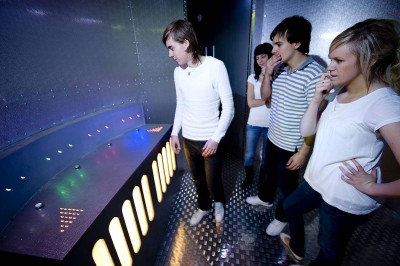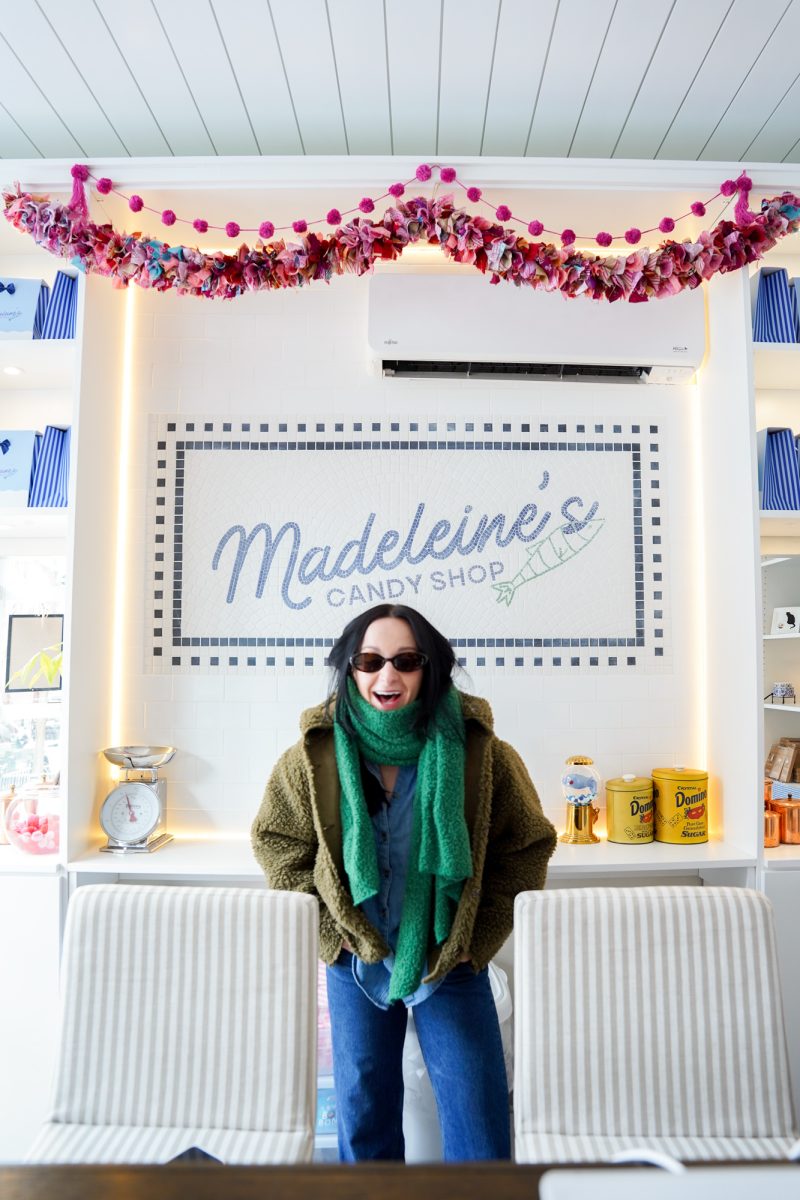
If you’ve ever wanted to experience a video game in real life, your chance is approaching.
This summer, Brookline entrepreneur Chad Ellis will open up Boda Borg Boston, an indoor “questing” center that combines puzzle solving with a range of obstacle courses. A “quest” entails a series of two to five challenges, each of which takes place in its own room. At the start, an individual or a team enters the room without any rules or guidance. Using their reasoning skills and athletic abilities, they have to find and face these challenges. A green light at the end of the challenge indicates success, and the door to the next challenge will unlock. A red light, however, means that the person has to start over.
The company originated in Sweden, where Stefan Kemi owns one of the seven Boda Borg locations opened over the past 20 years. Ellis, who also runs Your Move Games, a publishing company for board and card games, got involved when Kemi was looking for partners and potential investors who could help the company grow outside of Sweden. Kemi chose to contact Ellis through the Harvard Business School alumni database, after seeing his background in games.
“He talked me through what he was doing, and I looked through the presentation he was using with investors,” Ellis said. “I have a little bit of a background in investment banking, and I thought I could help him with that. So we started talking once a week. I’d give him my thoughts on the way he was presenting, and I just got more and more interested.”
Boda Borg Boston, which will be the first Boda Borg location in the United States, draws a lot of its ideas from the Swedish locations, from challenges to the levels of physicality. The quests are all broken down into three levels — green, red and black. Each of these colors signifies the level of physicality required for the challenge. Ellis emphasized that Boda Borg Boston is handicapped-friendly, as the green quests have almost no physicality and can be performed in a wheelchair.
“People can really create the experience they want to create,” Ellis said. “If you want to do a little bit of climbing around and be physical but not do anything strenuous, you can add in the red quests. And if you decide that you really want to push yourself and make it a very physical experience, then you spend more time doing the black quests. You can really choose that for yourself.”
Ellis also stressed the safety of Boda Borg. All of the quests have either been in other locations or have been tested with dry runs. The quests themselves are also designed in a way that makes them safe for all visitors.
“Here, if you’re climbing along a wall, you’re a foot off the ground,” Ellis said. “Even if you fell, you’re unlikely to get really injured. I will say that bumps and scrapes and things like that are fairly common at Boda Borg. It is a physical activity. The injury rate that Boda Borg has had is less than soccer, less than trampolines and less than bowling.”
Despite his apparent success with creating safe challenges, there is a problem that Ellis might face with this branch — appealing to the full target market. After learning that Kemi was planning to open up the first American branch in California, Ellis convinced him that it would be a better idea to move it to Boston.
“We’ve got all of these universities, and it’ll be really popular with people of that age,” Ellis said. “We’ve got these families that want to do smart and healthy things with their kids, and we’ve also got a really big team-building market. This sounds to me like it would be a great thing for team building.”
Several college students, however, do not actually find Boda Borg as appealing as Ellis believes.
“He’s very misdirected in choosing a college-heavy town for what’s essentially just a bigger version of a McDonald’s Playhouse,” said Matt Manarchy, a freshman in Boston University’s College of Arts and Sciences. “He’d probably have more success in a more suburban locale, or a different city with more young parents. That’d be better for his long-term growth.”
Erik Molander, a lecturer in Strategy and Innovation at the School of Management, said Boda Borg Boston appeals to a younger demographic. However, Molander was optimistic about Ellis’s effort to widen his market.
“This is really for that most difficult demographic to reach — teens and tweens,” he said. “They don’t want to have anything to do with their parents, or would love to see their parents struggling with the kinds of things that they struggle with, like being awkward or working on puzzles together … The question really is, is this an appropriate date night model for young adults? It’s worth a try, to figure that out.”
Ellis said he is up for the challenge, sharing his belief that the lessons taught and experiences gained at Boda Borg are valuable for visitors of all ages. It is all about failing, working together to resolve mistakes and learn from them, he said.
“Failure is very much a part of the process,” he said. “You will fail many times at Boda Borg, and it becomes an environment of trial and error and experimentation … Part of what you’re doing is learning what it is that you’re supposed to do, but what you’re supposed to do always makes sense. You’re always learning as you go.”
Out of all, what Ellis emphasized the most was the innovative feel of Boda Borg Boston. Coming from Sweden, he said, it is different than anything American challenge-seekers have ever experienced.
“Boda Borg really is different than any other kind of challenge activity,” he said. “More than anything else, what really differentiates it is the kind of open-ended exploration that happens because we don’t tell you the rules … it just creates a very different and very fun experience.”




















































































































N • Mar 5, 2015 at 12:30 pm
Another one bites the dust.